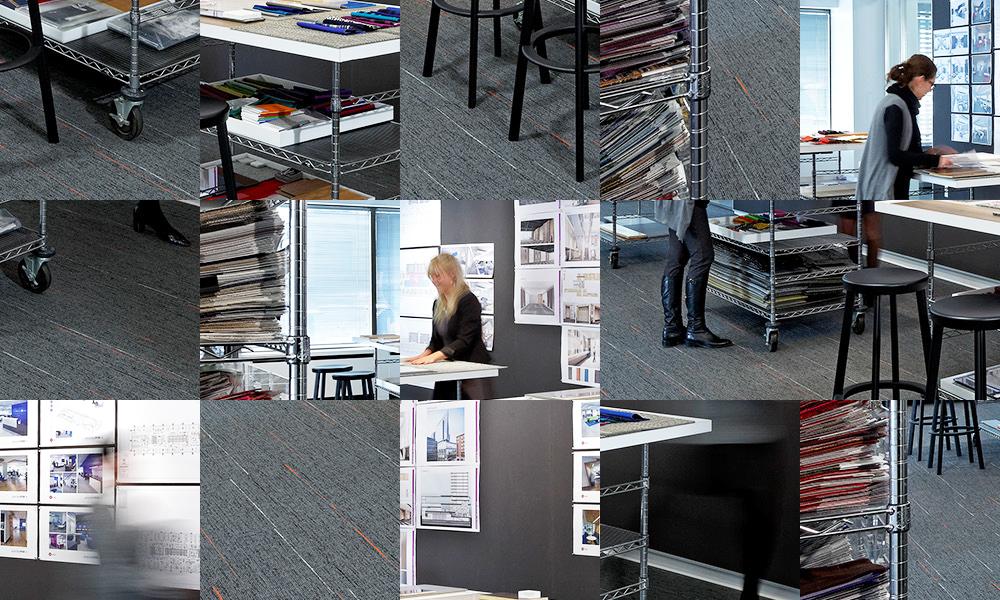International Women’s Day: Architects, Urbanists & Engineers
By TH!NK by IBI
Date
March 8, 2017For International Women’s Day, we’re recognizing women across IBI Group and their positive force in our workplace, promoting their contributions to their professional fields and demonstrating the value of diversity for our firm. As this year’s International Women’s Day theme is ‘Women in the Changing World of Work: Planet 50-50 by 2030’ we wanted to gather perspectives of our female staff and share their reflections, aspirations and reasons for optimism.
The city-making fields of architecture, urban planning and design, and engineering have evolved considerably since their inception. There are now a number of women in top city-making positions and at IBI, we’re noticing the students we hire are coming in with greater representation across every field. There are still considerable challenges on the path to achieving gender equity; however we are getting closer to 50/50 gender diversity in the workplace, and the associated benefits this can create for cities. These are some of the women paving the way.

Reflections: I have never felt less of an architect for being a woman, I would say the contrary: I have always felt blessed to have that sixth sense to tap into. As a woman architect I look at architecture as an art with social impact.
Reasons for optimism: The talent I see around me coming from younger generations is my main reason for optimism.
Aspirations: I aspire to play a significant role in building the fabric of our city and to incite new direction in the discourse of what the cities of the future aim to be. I would like our team to be pioneers in healthy and barrier free cities. I would like to grow a name as a social architect and activist.
Mar Granados – Senior Designer – New York City, USA

Reflections: When I started my first job in Intelligent Transport Systems in 1996, there wasn’t a PC on my desk. There were three PCs shared between some 20 or 30 professional staff, and we had to book time on them. The bulk of project discussions were carried out by telephone; I had to record the key points on a “telephone record” form by hand, and if necessary, send a fax to confirm important details with the client. It was probably a couple of years before we had email as a work tool and of course I didn’t have a mobile phone either… The internet age, and constant connectivity, has increased my need to organise and prioritise, but has given me immense flexibility.
With IBI’s support, I’m able to work part time, and largely from home. This allows me to take my six-year-old to and from school most days but still continue to retain my senior role within IBI and within the industry. Flexibility works both ways; some days I’m up very early to arrive on time for client meetings and home late, other days I’m able to watch my son’s school assembly, or take him to the park after school. One thing that hasn’t changed is that ITS has continued to mean innovation; new ways of doing things. There’s no rule book, and I’m always having to consider how to solve new problems. To find the best solutions to ITS, I also need to weigh different aspects of an issue. I continue to find the job challenging and rewarding.
Helen Parkyns – Intelligence Studio Principle – Birmingham, UK

Reflections: I joined IBI Group as a landscape architect in January 2012. It was an exciting time to join IBI, and since then, I’ve grown the Hamilton Landscape Architecture group from one supporting staff member to a team of four individuals.
Historically, the role of landscape architects in our Hamilton office has been to support land development projects locally, but we have been successful in broadening the practice to include areas of expertise in park and trail development while collaborating with and providing support to other IBI Group offices on school, transit facilities and energy development projects.
Jennifer Moore – Manager of Landscape Architecture – Hamilton, Canada

Reflections: Architecture is a profession that demands passion. My passions for the built environment have evolved over a varied, 20 year career. As a student, the joy of creating and comradery (and coffee) in the studio kept me going. As a junior architect there were more late nights but also the excitement of being involved in projects that were actually built! My passion for design is still deep within me but over time, my focus has shifted.
As a registered architect, I have found myself by circumstance and by choice, leading projects during the construction administration phase. During this phase of design and construction, the architect works with the contractor and owner to ensure that the building meets the design intent. I could not have predicted how much I would enjoy this aspect of my profession when I was a freshman in architecture school. It’s amazing to go to the site and see a building take shape. Yes, there are plenty of submittals to be reviewed and RFIs to be answered. Nevertheless, I see CA as problem solving; architecture is at its core. Our job is to make beautiful, safe and functional places for people while doing so within constraints at each stage in the process. Every day is a new challenge and problem to solve.
Theresa Benedetti – Project Architect – New York City, USA

Reasons for optimism: I see more women being hired… I hope they can become senior leaders. I hear less condescending messages… I hope we can all soon ensure there is none. I am inspired when I see women less afraid of behaving as women…. I hope it keeps growing and we can accept more diversity in all fields of architecture and engineering.
I need to be able to tell the next generation that is possible to achieve your potential in a career without leaving other dreams behind. Every day we are confronted with hard choices and you need to be able to think it is still worth it. I have a lot of optimism in my field of Transit Architecture that builds better communities and access to transportation. When I feel insecure as a woman, I think of the importance of my work, my grandmother and mother that inspired me, and I am able to keep going so it is even better for the next generation.
Ana-Francisca de la Mora – Architect/Project Manager – Toronto, Canada

Reasons for optimism: The architecture profession has long been troubled by the nagging question: “Where are the women architects?” The good news is this: after centuries of the erasure of women from architecture history, the equity debate has gained awareness in the profession. Through lectures, exhibitions, and social media, the account of women in architecture is being brought to light. Awareness and discussion is the first step to the winds of real change. Recently, both female and male architects spoke up against the AIA’s lack of women speakers at their annual convention. Through social media and a petition signed by prominent women in the field, the AIA has added a special panel entitled “Anticipate Change – What’s Next in Architecture.”
The statistics of women in architecture show that we still have a long way to go. Only thirty-two percent of licensed architects in the United States are women, and the number of women in leadership roles is even smaller. However, the female mentorship and leadership I’ve experienced at IBI Group has given me hope that this too can change. I look forward to the day when women in architecture are no longer a novelty, but a norm.
Adriana Davis – Junior Architect – New York City, USA

Aspirations: At my high school in Morocco, I was one of the two girls that took the “technology” path. But being different in this sense has always driven me to do better. And it still does. It motivates me to be an architect that creates impact, emotion and change. Many examples come to mind: making a space accessible to everyone, producing a sense of belonging, creating monumentality and many more design decisions that construct “feelings” and give freedom to everyone. To achieve that, I believe, we should use innovation and responsive design to create positive impactful transformation and I am lucky enough to be working at a firm that does that. My wish today is to keep learning from the great architects and leaders I am working around, and to someday become the inspiration for others. And my goal every day is to create architecture that is screaming out loud to everyone that we, women, can make it.
Meriem Sakrouhi – Architectural Designer – New York City, USA

Aspirations: I walked into IBI’s world with education and experience in business and administration. During my ‘journey’ at IBI I have had a chance to work across a number of disciplines involving a variety of duties that gave me the opportunity to innovate. When my role was transitioned from a business focus to a more technical role, I thought of it as a big and challenging step. However, more than that, it was an opportunity to prove that having a business degree doesn’t stop you from developing your career in a technical role. Rather, I think the key to success is a willingness to demonstrate your enthusiasm and commitment.
Having stepped into the Intelligence sector of IBI, I experience the powerful insight of the Intelligent Transport Systems (ITS) industry. We focus on developing, maintaining and promoting smart and innovative solutions to provide improved mobility, better services for citizens and more cost-effective transport networks. Doing so enables us to address common transport challenges that cities around the world face. ITS is still perceived as a male dominated industry but I think it’s time for a change. Women have proven that they can succeed in a great industry that focuses on new technologies. This didn’t happen by accident.
During my career, I hope to see improvement in how women are perceived of in ITS roles. This change will facilitate the professional development of women in ITS. In turn, this will also contribute to ITS by adding the knowledge and experience from a woman’s perspective. This greater diversity of views will support our efforts to achieve smart growth in all regions by transforming current transportation infrastructures and systems into intelligent transport systems, increasing the efficiency of transport processes, improving environmental protection and safety for all.
Agata Zebrowska – Consultant – Birmingham, UK







